By Just a Pack contributor Amy Benson
I’d read before coming that meat was a big deal, had steeled myself for potential hunger, awkward encounters, wider hips. Had attempted to comfort my previously pescatarian, juice-obsessed self with the idea that it would be fresh, free roaming, grass fed – that the African version of myself, steeped in pink sunsets and newly barefoot, wouldn’t mind.
Botswana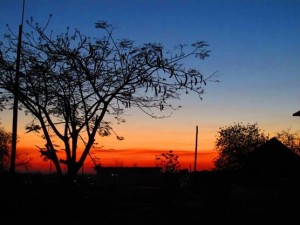 exports only two things to any meaningful degree and these are diamonds and beef. Beef, flesh, chicken heads – these are things I’d read about, had prepared for. What I was not prepared for was that my first meal in this country would, indeed, include meat but that that meat would plop out of a faded red tin that read TEXAN BEEF and that this food product, in all of its gelatinous spam-like resilience, would hold the shape of its tin casing on my plate, which was also adorned with a mountain of dry white rice and a generous puddle of ketchup.
exports only two things to any meaningful degree and these are diamonds and beef. Beef, flesh, chicken heads – these are things I’d read about, had prepared for. What I was not prepared for was that my first meal in this country would, indeed, include meat but that that meat would plop out of a faded red tin that read TEXAN BEEF and that this food product, in all of its gelatinous spam-like resilience, would hold the shape of its tin casing on my plate, which was also adorned with a mountain of dry white rice and a generous puddle of ketchup.
The Peace Corps. I’d joined the Peace Corps and when one does this, she agrees to 27 months of limited options. In preparing to come, I understood this abstractly, assigned its significance to a future me, entertained images of myself tending to a garden; tossing grain to fat hens whose eggs I would gingerly collect into a basket; gathering firewood on which to place boiling pots of fresh beans. My imaginings failed to take into account, not only that I can’t make a proper fire, but the reality on the ground for much of Sub Saharan Africa, and for much of the developing world, and that is this: when you don’t have enough money to comfortably feed and otherwise support your family, nutrition takes a back seat to sustenance and processed, sugary foods are not only cheaper than more wholesome options, they’re a quick shot of serotonin to the soul, something to get excited about in a place where little changes and the future is less planned for than it is tuned out.
In the simplest terms, when I moved to Botswana 13 months ago I didn’t know how to feed myself and I persisted in not knowing for months. It isn’t that I was unable to acquire food. It was that being fed is not the same thing as being nourished; that I didn’t (and don’t) live with electricity and, therefore, a refrigerator; that small markets have been replaced by South African chain grocery stores, which hawk sugar, salt and MSG in plastic packages.
In my first months in Botswana, each afternoon, I would schlep my way home through the sandy Kalahari Desert and collapse into my house feeling so vaguely, but wholly unwell the only thing I could think to do was to sit in a bucket of cool water and try not to think. I was never satisfied, my head pounded, my nights of sleep had deteriorated into a series of irritating nocturnal naps and I was puffing out like a swollen sea sponge (a fact everyone in my village delighted in informing me of).
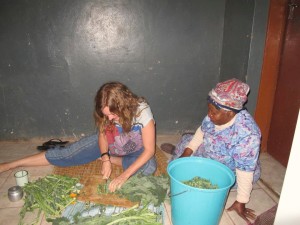 Never before had I had this much consistent control over my diet (read: my health): there are no restaurants for miles in any direction, and yet I was weak, dizzy and tired nearly all of the time. This was summer in Sub Saharan Africa and I am Irish and this is a bad combination, but the heat had nothing on the manic way in which I was trying to stay fed. With no means to refrigerate things and the necessity that I plan, food-wise, for hours outside of my house working in the eternal blaze, I boiled eggs (which it turns out don’t need to be refrigerated at all); I panicked about not eating enough vegetables and stuffed enormous trays of boiled beets into plastic containers; I carried a jar of salt and sugar-infused peanut butter with me everywhere. In this way, I tried to avoid starvation away from my home, which would inevitably mean being tempted to eat boiled cow intestines or fried liver, or buying a miniature sleeve of biscuits the ingredient list of which would boast gluten, unhydrogenated vegetable oil, salt, sugar, yeast, raising agents and flour improver.
Never before had I had this much consistent control over my diet (read: my health): there are no restaurants for miles in any direction, and yet I was weak, dizzy and tired nearly all of the time. This was summer in Sub Saharan Africa and I am Irish and this is a bad combination, but the heat had nothing on the manic way in which I was trying to stay fed. With no means to refrigerate things and the necessity that I plan, food-wise, for hours outside of my house working in the eternal blaze, I boiled eggs (which it turns out don’t need to be refrigerated at all); I panicked about not eating enough vegetables and stuffed enormous trays of boiled beets into plastic containers; I carried a jar of salt and sugar-infused peanut butter with me everywhere. In this way, I tried to avoid starvation away from my home, which would inevitably mean being tempted to eat boiled cow intestines or fried liver, or buying a miniature sleeve of biscuits the ingredient list of which would boast gluten, unhydrogenated vegetable oil, salt, sugar, yeast, raising agents and flour improver.
For me, the irony of my new found misery was that I had not only actively participated in the act of transplanting myself from New York City to a speck of a place in the middle of the desert in Africa, I had fought and competed for the pleasure. I knew, again abstractly, as if this was going to all fade into a movie I’d once seen, that it would not be easy, that likely I would not embody my most graceful self, but these first months, perhaps four of them, I was in a sort of crisis that is only clear to me now, in retrospect. Everything about my life existed in its most extreme expression: the isolation, the boiling air, the inwardness of my thoughts. I couldn’t cope and if I was going to have any chance of finishing this thing, I needed a body that was on my side. I needed to find a way to get healthy.
I had been a vegetarian off and on for years, but this was motivated, rather thoughtlessly, both by mere habit and by the desire to be thin, the sort of disordered eating that has defined, unfortunately, generations of young American women. But here, in this desert by myself, I had to learn to relate to my body in, what was for me, a new way. To be on the same team, to love it so that it would love me back and, for me, this has meant a thoughtful and plant-based diet rooted in my health and how it makes me feel, rather than look. Veganism. I began reading about plant-based nutrition (Brendan Brazier’s Thrive may have saved my life or at the least my Peace Corps service), about how much stress I was likely inflicting on my body via my rickety diet, about cortisol and its impact on restful sleep, about where to find iron, calcium and electrolytes within my food – things I had likely consumed by default in the States and here had to intentionally seek out. I discovered that I was allergic to foods I’d been consuming for years and filled bowls with raw vegetables, seeds, nuts, beans, fruit and grains. Things got better for me after that.
My health is still a challenge in this dusty place, my most recent crises being a dime-sized pink dot on my back that looks just like the image of a tick bite Google shows me, sinus trouble from all of the dust the donkey carts kick up and the endless effort to stave off heat stroke. But I can sleep now. Meals satisfy me, my chronic hunger is gone, as well as its accompanying headache. I walk in through my front door instead of bursting. It’s hard to say what life will be like when I finally leave Botswana, when I pack up my few things and board a bus for who knows where, but I can’t imagine that my new diet, unlike the pink sunsets and barefoot walks to work, won’t be something I get to keep.



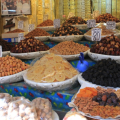
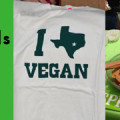
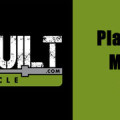
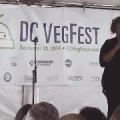
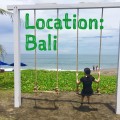
No Comments